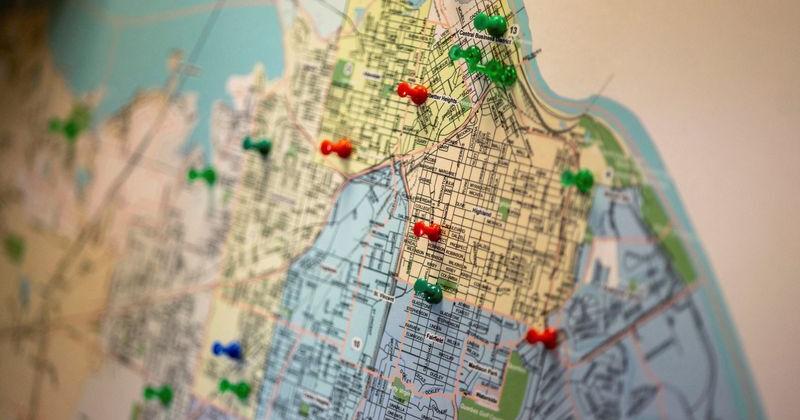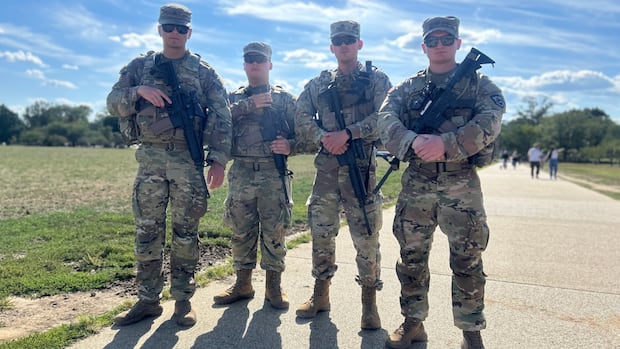Trump Announces Federal Law Enforcement Deployment to Memphis; Chicago Next?
President Donald Trump announced plans to establish a "Memphis Safe Task Force" aimed at curbing crime, potentially leading to the deployment of the National Guard in Memphis, Tennessee. This initiative mirrors a similar law enforcement effort in Washington, D.C., and Trump indicated that Chicago is also being considered for a similar task force.
Memphis Braces for Federal Intervention
Mayor Paul Young of Memphis expressed reservations about the potential National Guard deployment, stating he was "not happy" but is focused on investing in local solutions to address crime. The decision follows weeks of speculation about Chicago being the next target, but concerns about state governor buy-in shifted the focus to Memphis, where Tennessee's Republican leadership has welcomed federal assistance. Governor Bill Lee has been in communication with President Trump to develop the plan.
Trump emphasized the urgency due to high crime rates in Memphis and other cities. He stated, "It’s very important because of the crime that’s going on, not only in Memphis, in many cities," highlighting the task force as a "replica" of successful efforts in Washington, D.C.
Details of the Potential Deployment
Mayor Young learned about the potential deployment through Governor Lee's office, discussing increased law enforcement presence via the FBI, Drug Enforcement Administration, and Bureau of Alcohol, Tobacco, Firearms and Explosives. While details are still being finalized, the first troops were expected as soon as this week.
The Memphis plan is modeled after the Washington, D.C., crackdown, involving a task force with local law enforcement. Young expects details on troop numbers, arrival date, and duties this week, suggesting potential roles like traffic control, surveillance camera monitoring, or neighborhood "beautification" efforts. He briefed city council members and business leaders to prepare for the potential arrival, according to CNN affiliate WATN.
Conflicting Perspectives and Local Concerns
A White House official stated the decision was about crime, noting Memphis's high violent crime, property crime, and murder rates in 2024. However, Memphis police reported significant crime reductions in the first eight months of 2025, reaching a 25-year low for overall crime and a six-year low for murders.
Local leaders, including Shelby County Mayor Lee Harris, criticized the deployment as a "threat to democracy" and called for restored federal funding for violence-prevention programs. State Rep. Justin J. Pearson stated, "there is no red carpet being laid out" and advocated for "poverty eradication, not military occupation," urging resource allocation instead of military presence.
"What we need is poverty eradication, not military occupation," Pearson said. "So don’t bring the National Guard. Give us the resources that we need for our people, for our city, for our county."
Mayor Young referenced previous National Guard deployments to Memphis, including after the assassination of Martin Luther King Jr. in 1968 and during a police and firefighters' strike in 1978. He expressed concern about invoking those images.
Historical Context and Legal Challenges
Since deploying the National Guard to Los Angeles and Washington, D.C., the Trump administration has considered similar actions in other cities. While crime decreased in Washington, D.C., under federal intervention, Trump's assertion of federal control over Washington's police force has faced criticism as a "dangerous power grab." The president's authority stems from Washington, D.C.'s federal status.
Past attempts to deploy the National Guard have encountered legal challenges. For instance, a federal judge ruled a deployment to Los Angeles against California Gov. Gavin Newsom's will illegal, though the administration planned to appeal.
About the Author
This article was written by Samuel Hardiman, an enterprise and investigative reporter focusing on local government and politics. Hardiman previously covered government and economic development for the Memphis Business Journal and served as the Memphis Commercial Appeal’s city hall reporter. His current work focuses on Elon Musk’s xAI, regional energy needs, and how Memphis and Shelby County governments spend taxpayer dollars.
 Visit the website
Visit the website



